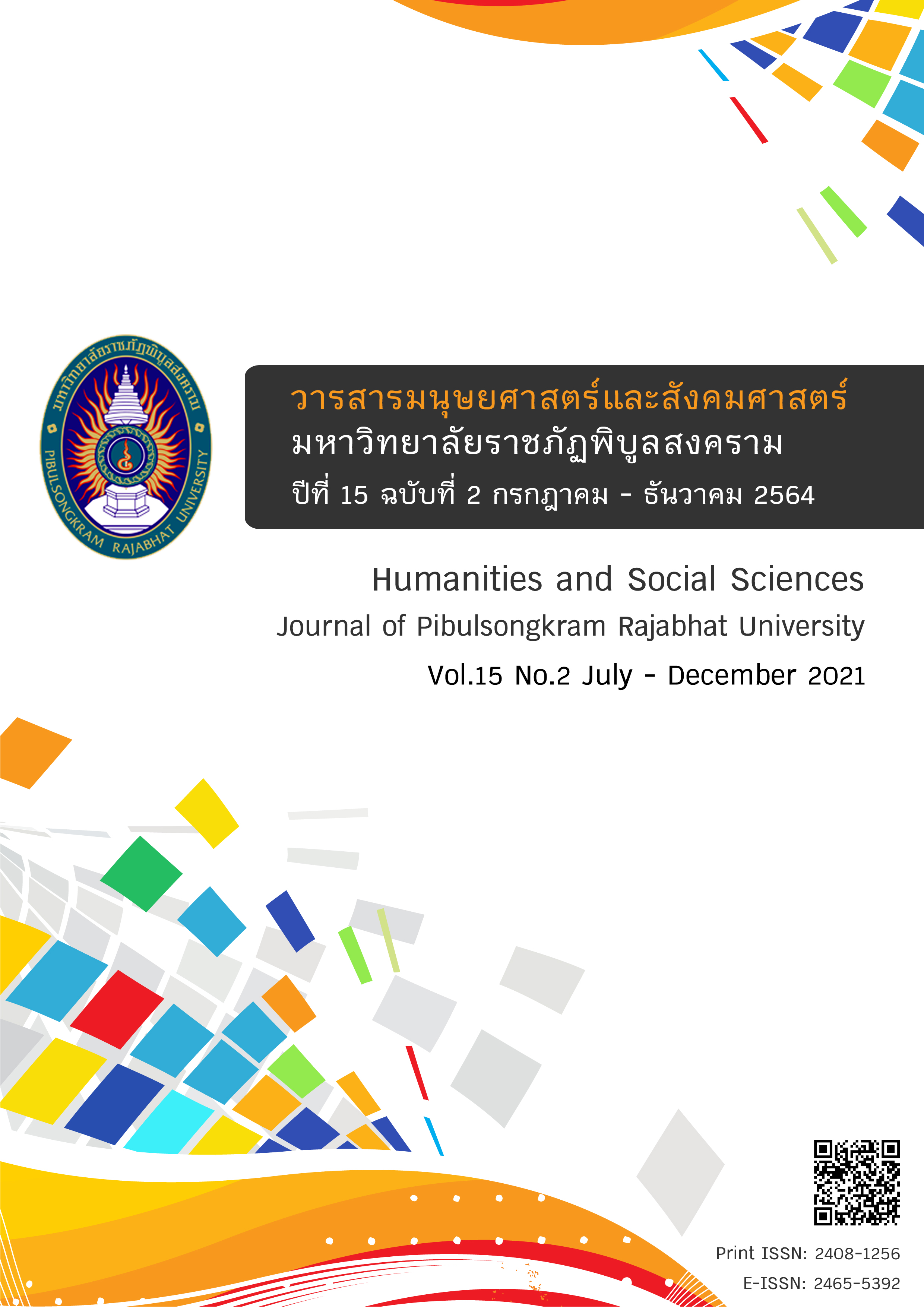Community Waste Management under the Circular Economy Concept of Local Administrative Organizations
DOI:
https://doi.org/10.14456/psruhss.2021.28Keywords:
Waste management, Circular economy, Local administrative organizationsAbstract
The objectives of this study were to study community waste under the circular economy concept of local administrative organizations (LAOs). This study used qualitative methods, including in-depth interviews with 15 key informants. This study also used purposive and stratified sampling, and the data were analyzed by using analytic induction and content analysis. The results showed that few people segregate the waste, while organizations promote waste segregation and try to bring the circular economy concept to operations under the 3R concept of reduce, reuse, and recycle, and they emphasize household waste segregation for sale and recycling of garbage so that households can earn income for family expenses. In addition, LAOs also encourage waste bank projects to be set up as places to collect and buy garbage from households, and they encorage households to compost their own fertilizer and to make biogas from food scraps. So, implementation circular economy into waste management activities increased household incomes and reduce cost of Living.
References
กรมส่งเสริมคุณภาพสิ่งแวดล้อม. (2560). คู่มือการสร้างวินัยสู่การจัดการขยะที่ยั่งยืน (พิมพ์ครั้งที่ 5). กรุงเทพฯ: กองส่งเสริมและเผยแพร่ กรมส่งเสริมคุณภาพสิ่งแวดล้อม.
Chiemchaisri, C., Visvanathan, C., & Labayen, J. J. (2008). Municipal solid waste management in Thailand and disposal emission inventory. Environmental Monitoring and Assessment, 135(1-3), 13-20.
Geng, Y., & Doberstein, B. (2008). Developing the circular economy in China: challenges and opportunities for achieving leapfrog development. International Journal of Sustainable Development and World Ecology, 15(3), 231-239.
Green Future Solutions. (2017). Insights on the Circular Economy in Singapore. Retrieved October 20, 2019 from http://www.greenfuture.sg/2014/10/22/insights-on-the-circular-economy-in-singapore/
Jaisue, D., Kotarputh, R., Kumsiriruk, N., Kwanphon, S., Naowadee, A., & Tantikulwattanakit, T. (2017). Situation of garbage and waste management at source in community, Wapipathum district, Mahasarakham province. Mahasarakham Hospital Journal, 14(3), 38-46.
Jongyin, T., Pukvilai, N., Ounsaneha, W., & Popradit, A. (2018). The Solid Waste Management System of Local Administration Organization: A Case Study of Saraburi Province. VRU Research and Development Journal Humanities and Social Science, 13(1), 86-97.
Kalmykova, Y., Sadagopan, M., & Rosado, L. (2018). Circular economy – From review of theories and practices to development of implementation tools. Resources, Conservation and Recycling, 135, 190-201.
Ma, Shu-hua., Wen, Zong-guo., Chen, Ji-ning., & Wen, Zhi-chao. (2014). Mode of circular economy in China's iron and steel industry: a case study in Wu’an city. Journal on Cleaner Production, 64, 505-512.
Naveekarn, K., Naknan, P., & Panyasiri, A. (2009). The study on behavior and opinion toward the community garbage management in Koh Libong village, Trang province. RMUTSV Research Journal, 1(2), 54-61.
Patitungkho, K., & Thangsri, N. (2009). Solid waste management in E-San sub-district municipality, Muang district, Buriram province. Journal of Research and Development Buriram Rajabhat University, 4(2), 60-72.
Piyasakulkiat, O. (2016). The people’s participation to waste management in Thakhae Subdistrict Administration Organization, Lopburi province. Journal of Graduate Studies Valaya Alongkorn Rajabhat University, 10(1), 106-115.
Promsaka Na Sakolnakorn, T. (2019). The guidelines for promotion of circular economy program of Local Administrative Organization for sustainable community development. (Master' s thesis). Bangkok: Chulalongkorn University.
Rashid, A., Farazee, M. A. Asif, Peter Krajnik, & Cornel Mihai Nicolescu. (2013). Resource conservative manufacturing. Journal on Cleaner Production, 57, 166-177.
Sutthibak, S. (2019). How to solve Thailand’s local waste management crisis. Retrieved on July 7, 2020 from https://isaanrecord.com/2019/07/07/solve-local-waste-management-crisis/
Wu, Hua-qing., Shi, Y., Xia, Q., & Zhu, Wei-dong. (2014). Effectiveness of the policy of circular economy in China: a DEA-based analysis for the period of 11th five-year-plan. Resources, Conservation and Recycling, 83, 163-175.
Zhu, Q., Geng, Y., & Lai, K. H. (2010). Circular economy practices among Chinese manufacturers varying in environmental-oriented supply chain cooperation and the performance implications. Journal of Environmental Management, 91(6), 1324-1331.
Downloads
Published
How to Cite
Issue
Section
License
Copyright (c) 2020 Humanities and Social Sciences Journal of Graduate School, Pibulsongkram Rajabhat University

This work is licensed under a Creative Commons Attribution-NonCommercial-NoDerivatives 4.0 International License.
Any articles or comments appearing in the Journal of Humanities and Social Sciences, Rajabhat Phibulsongkram University, are the intellectual property of the authors, and do not necessarily reflect the views of the editorial board. Published articles are copyrighted by the Journal of Humanities and Social Sciences, Rajabhat Phibulsongkram University.









